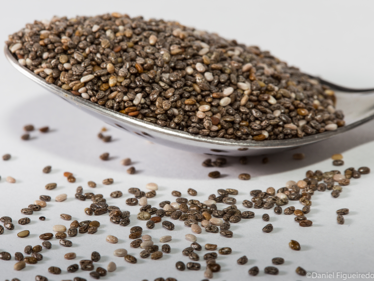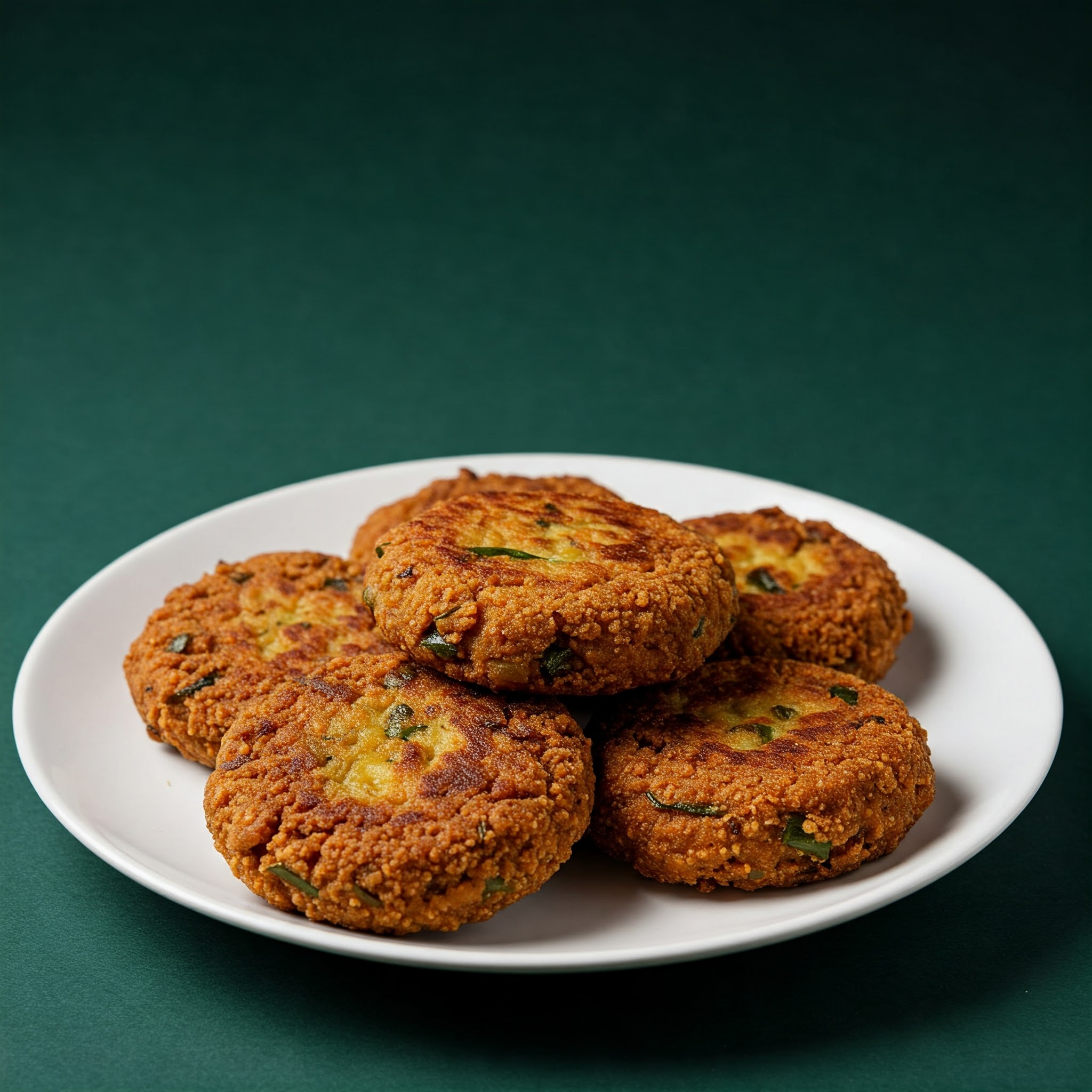Chia Seeds (चिया बीज)
Salvia Seeds, Chia

About Chia Seeds
Chia Seeds: The Superfood for Every Kitchen
Chia seeds, often referred to as tiny powerhouses, are creating waves in kitchens across India. These tiny black seeds are not only rich in nutrients but also bring a burst of flavor and texture to your meals. Whether sprinkled over yogurt, blended into smoothies, or added to your paratha dough, chia seeds are the perfect addition to your daily diet.
Rich in omega-3 fatty acids, fiber, protein, and essential minerals, chia seeds are known to boost heart health, improve digestion, and aid in weight management. They absorb liquid and form a gel-like texture, making them a great thickening agent for puddings, soups, and even homemade jams. Their versatility makes them a must-have in the pantry for anyone looking to lead a healthier lifestyle.
Imagine starting your day with a chia pudding topped with fruits, or adding a spoonful to your morning smoothie for an extra nutrient boost. These small seeds pack a punch with their antioxidant-rich profile, helping fight inflammation and supporting your immune system.
To Include Chia Seeds in your daily menu, logon to planmeal.com
Chia seeds are a simple yet powerful way to enhance your meals, promoting overall well-being. They’re easy to use, delicious, and nutrient-dense — a perfect choice for anyone looking to eat healthier. Discover the goodness of chia seeds today and start your journey to a balanced diet.
“Chia Seeds: Tiny Power, Big Impact.”
How Important Chia Seeds Are:
Chia seeds are a highly nutritious superfood that offer numerous health benefits. Rich in omega-3 fatty acids, fiber, antioxidants, and essential minerals like calcium and magnesium, chia seeds support heart health, digestion, and bone strength. They are an excellent source of plant-based protein and help in weight management due to their high fiber content, which promotes satiety.
Incorporating chia seeds into your daily diet can provide sustained energy, improve hydration, and aid in muscle recovery. Additionally, they are versatile and can be added to a variety of recipes, including smoothies, yogurt, salads, and baked goods, without altering the flavor. Their ability to absorb liquid and form a gel-like consistency makes them ideal for creating healthy puddings and jams.
Overall, chia seeds are a simple and effective way to enhance your nutritional intake and contribute to a balanced, healthy diet.
How to Store Chia Seeds
How to Store Chia Seeds:
To ensure your chia seeds remain fresh, store them in an airtight container to prevent exposure to moisture. Keep the container in a cool, dark, and dry place, such as a pantry or cupboard. For extended freshness, refrigerate or freeze the seeds, especially if you purchase them in bulk. Avoid storing them near heat sources or in direct sunlight, as this can shorten their shelf life. Always check for any rancid smell before using them to ensure they are still good to consume.
Shelf Life of Chia Seeds
Shelf Life of Chia Seeds:
Chia seeds have a long shelf life of up to 2-3 years when stored properly. Keep them in a cool, dry place in an airtight container. For optimal freshness, refrigerate or freeze them after opening. Always check for any signs of rancidity before use.
How to Check Chia Seeds Before Buying
How to Check Chia Seeds Before Buying:
When purchasing chia seeds from a local vendor, it’s important to inspect their quality and freshness. The seeds should be clean, whole, and free from any foreign particles or dust. Chia seeds are typically small, oval, and have a glossy black or white appearance. If the seeds are discolored, have a strange odor, or appear clumpy, they may be stale or have been exposed to moisture, which can lead to mold. Always choose chia seeds that are packaged in airtight, opaque containers to prevent exposure to light and air, which can degrade their nutritional quality.
Another good practice is to check for any visible signs of moisture or oiliness on the seeds, as this may indicate improper storage. Ensure that the packaging is intact and has a clear expiration date. It's best to buy chia seeds that are labeled "organic" for higher quality.
When to Purchase in Bulk:
The best time to purchase chia seeds in bulk is during the harvest season, which typically occurs in the late summer to early fall (August to October). Purchasing during this time ensures that the seeds are fresh and at their peak quality. Always buy in quantities that you can consume within a few months, as chia seeds have a shelf life of 6-12 months if stored properly.
Explore
Explore our services and take your business to the next level.
Recent Posts

Mirchi Vada is a perfect snack to add to your weekly meal plan. This crispy, spi...

Kuttu Cutlets are a flavorful, gluten-free snack, perfect for a balanced meal. P...

Lauki and Methi Thepla is the perfect addition to your balanced weekly menu. Pac...

Tomato Cucumber Salad is the perfect addition to your weekly meal plan, offering...

Kuttu and Lauki Soup is a wholesome, nutrient-packed dish that seamlessly fits i...
Ready for a Healthier You?
Take control of your wellness! Get a customized meal plan that fits your lifestyle. It's time to eat smarter, feel better, and transform your life!
Get Your Plan Now!Already a member? Login and start now!
Nutrition Facts
Serving Size:
Servings Per Container: 1
| Amount Per Serving | ||
|---|---|---|
| Calories | 486 | |
| Fat | ||
| Saturated Fat | ||
| Trans Fat | ||
| Cholesterol | 0 | |
| Sodium | 16 | |
| Carbs | 42.1 | |
| Fiber | ||
| Sugar | 0 | |
| Protein | 1.4 | |
| VitaminD | ||
| Calcium | 631 | |
| Iron | 7.72 | |
| Potassium | 407 | |
* Percent Daily Values are based on a 2000 calorie diet.
* Percent Daily Values are based on a 2000 calorie diet.

